prg.ai newsletter #25: A summer’s worth of robotics
Summer vacation time has arrived, and so did our regular rundown of local successes, exciting events, and interesting information sources when it comes to all things AI. A wide array of conferences, summer schools, and news releases is awaiting you in our June newsletter, promising a pleasant summer read.
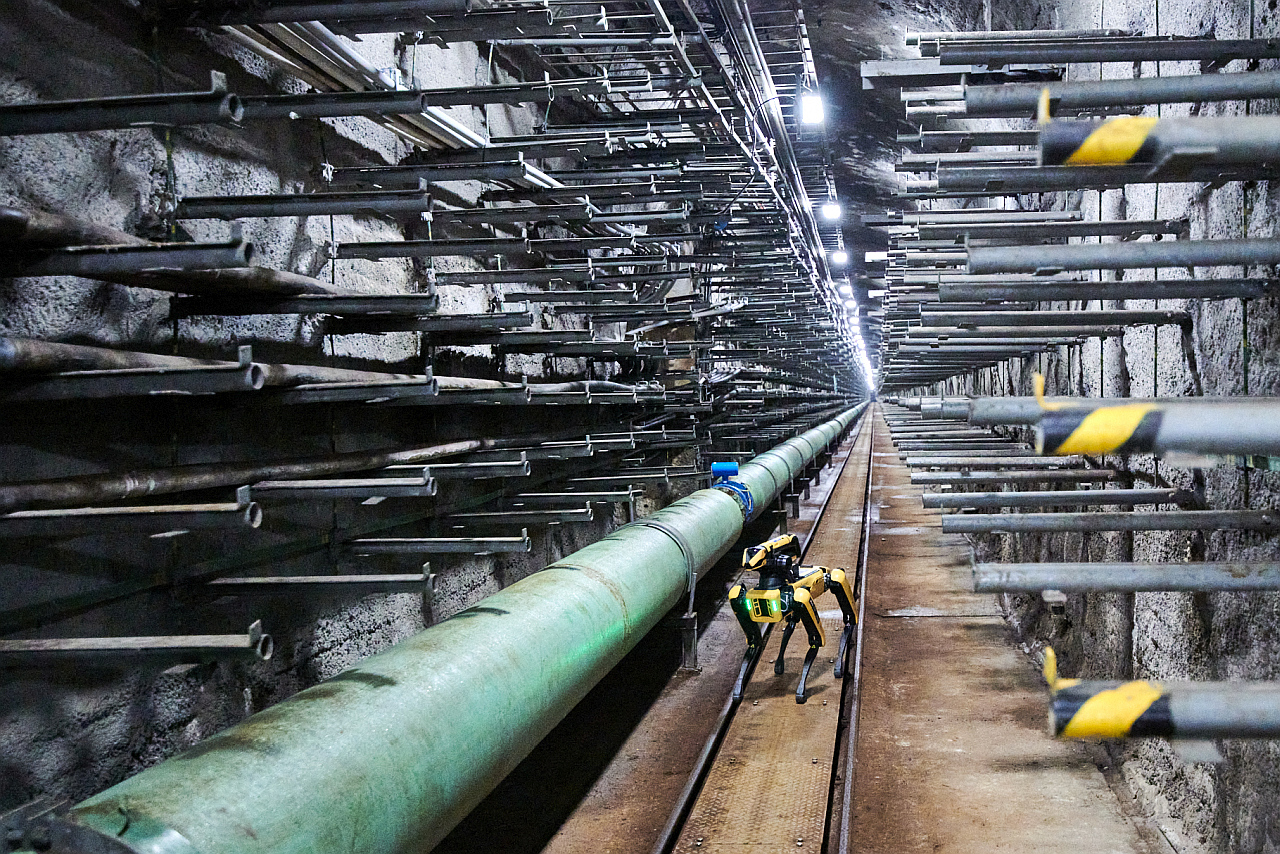
🏡 What’s new at prg.ai
Our proposal for a new EDIH saw success in Brussels
In June, the European Commission published the successful candidates for new European Digital Innovation Hub (EDIH). And prg.ai registered a success: our proposal for a new EDIH was approved by the European Commission. The approved EDIH focuses on the implementation of artificial intelligence and machine learning in the areas of industry, healthcare, transport and energy; its goal is research and technology transfer towards higher digitization of small and medium-sized enterprises and public administration. Under the coordination of CTU, prg.ai worked on the proposal with several partners including the Union of Industry and Transport of the Czech Republic, the Association of Small and Medium Enterprises and Entrepreneurs of the Czech Republic, the Research Institute for Entrepreneurship and Innovation, the Prague Innovation Institute, the Innovation Center of the Ústí Region, and the Czech-Moravian Center for Breakthrough Technologies.
A theatre play completely authored by AI? Closer than you may think
Rudolf Rosa is the scientist behind the first theatre play introducing artificial intelligence to the stage. Nevertheless, he admits that the machine may not create art because it has no intrinsic inspiration for art. Though AI can be made useful for various artistic endeavours: including writing sitcom scripts, generating images, or assisting young writers. In our latest Journal interview, you can read about how Rudolf Rosa, a researcher at the Institute of Formal and Applied Linguistics, CUNI’s MFF, sees the future of AI in art.
prg.ai Minor in action
prg.ai Minor has closed off the academic year successfully — and the last event was also the first for many attendees as it welcomed members of the newly admitted cohort and introduced them to the community. Yet we were happy to see some familiar faces as well: multiple alumni took time to catch up with their peers and contribute their wisdom. We even had the honour to present one final certificate to a recent graduate of the programme, who missed his official ceremony due to his doctoral studies at the prestigious National University in Singapore. We wish all students a relaxing summer holiday and plentiful resolve to take into the upcoming semester!
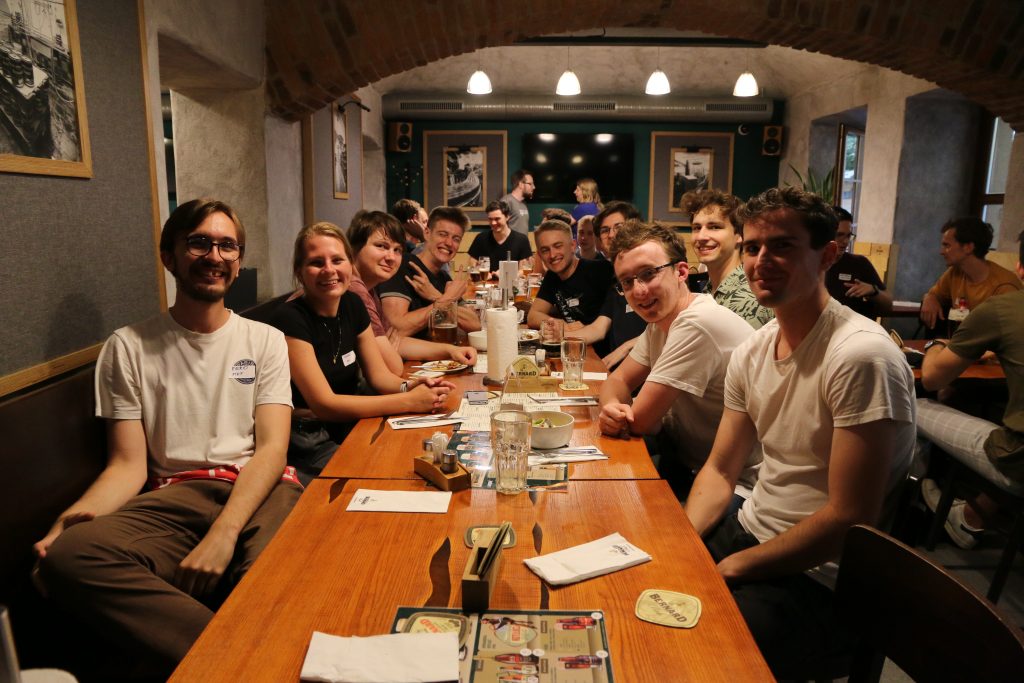
What have we been up to in the past year?
With another year under the belt, prg.ai has released its latest annual report, now available here. In the document you can find details about our organisation’s functioning, most important projects, and future ambitions. It includes chapters on all our most important domains of activity, covering international outreach, education, innovation support, and community engagement.
🎭 Events we’re excited about
6 – 8 Jul, 14th International Workshop on Self-Organising Maps and Learning Vector Quantization, Clustering and Data Visualisation (WSOM+ 2022)
Organised by the CTU’s Faculty of Electrical Engineering in memory of Teuvo Kalevi Kohonen, the 14th instalment of WSOM+ will take place in Prague this July. The Workshop invites contributions related to the theoretical and methodological aspects of unsupervised learning, self-organising maps, learning vector quantization, clustering, and data visualisation and other closely related topics.
25 – 30 Jul, Vision and Sports Summer School 2022
This unique summer school combines interesting lectures on state-of-the-art computer vision techniques with a broad range of exciting sports activities, including floorball, ultimate frisbee, and table tennis. And here’s the kicker: the sports sessions are given by the same internationally renowned experts who deliver the lectures! Master and PhD students in participation will get the best of both worlds: high-quality teaching on computer vision as well as the opportunity to work out and bond with their lecturers and fellow students.
31 Jul, HUMAIN Conference – Call for Papers
HUMAIN is an interdisciplinary conference connecting professionals, researchers and enthusiasts interested in the fields of AI, design, art, and the humanities to uncover the true potential of artificial intelligence beyond its mythos. This year’s call for papers closes on July 31st: don’t hesitate to send in your contribution and register to attend the event in October.
1 – 5 Aug, IEEE RAS Summer School on Multi-Robot Systems
After a year off due to the COVID-19 pandemic, the IEEE RAS Summer School on Multi-Robot Systems is back in Prague! During the Summer School, attendees will have the chance to explore the newest achievements in research which enables multiple robots to cooperate. The main scope of the 2022 IEEE RAS Summer School on Multi-Robot Systems will center around systems of cooperating aerial vehicles and swarms, including lectures by well-recognized experts in the field, and hands-on experience with real-world experiments using state-of-the-art aerial platforms developed for multi-robot research.
4 – 7 Aug, Human-aligned Summer School
Human-aligned Summer School invites researchers, PhD candidates, private sector professionals, and talented students to discuss latest trends in AI alignment research. It is assumed the attendees understand current ML approaches such as deep learning, reinforcement learning, and some of the underlying theoretical frameworks, since the main focus will be on teaching approaches and more advanced frameworks. Interdisciplinary expertise is welcome as well this year, and researchers working in fields by the likes of evolutionary biology, behavioural economics, or statistical mechanics interested in AI alignment are welcome to apply.
12 – 16 Sep, International Conference on 3D Vision
In 2011, 3DIM and 3DPVT joined forces to create a new yearly conference dedicated to 3D research, originally known as 3DIMPVT for 2011 and 2012. Since 2013, under the name 3DV (3D Vision). This annual event provides a premier platform for disseminating research results covering a broad variety of topics in the area of 3D research in computer vision and graphics, from novel optical sensors, signal processing, geometric modelling, representation and transmission, to visualisation and interaction, and a variety of applications.
19 – 20 Sep, Prague City Data Congress
Prague City Data Congress is organised by Prague’s own Operátor ICT in partnership with prg.ai again this fall. The aim of the congress is to showcase new insights and drive networking in the fields of data, urban planning, and municipal coordination. The 2022 edition will focus on the interdependencies of climate change and smart solutions based on case studies investigating issues of mobility in public space. The event will gather local and international experts (including e.g. Fabío Duarte and Eunsu Kim from MIT Sensible City Lab) to look beyond the numbers and discover the role that city data plays in creating a better future. Follow updates on the website linked below to stay up to date.
👏 Members’ news that makes us proud
Smart city management, cheaper water distribution, more sustainable and effective industrial production, or new medical breakthroughs: AI could help Prague with all of that, if only we let it. Yet the Prague AI ecosystem faces multiple challenges — and the relative lack of funding is definitely one of them. “The city ought to invest into its own future if it aims to thrive,” notes Tomáš Mikolov, highlighting the economic potential of technological innovation. In this article you can read about the inspiration behind prg.ai’s founding, its vision in international context, and the benefits associated with better implementations of AI technologies.
Are you aware of how Czech Republic deploys modern technologies? You better be: artificial intelligence can be implemented across multiple domains relevant to every-day security. In the new #WeKnowWhatWeHave video series produced by the Ministry of Defense, Deputy Minister Tomáš Kopečný highlights the cybersecurity expertise of Avast’s Michal Pěchouček as well as experts from Phonexia, Cogniware, Resistant AI, and Eydea Recognition. In the video (available in both Czech and English), you can explore security-focused AI in action and see how computer vision, voice recognition, and licence plate identification is deployed to keep us safer on- and off-line.
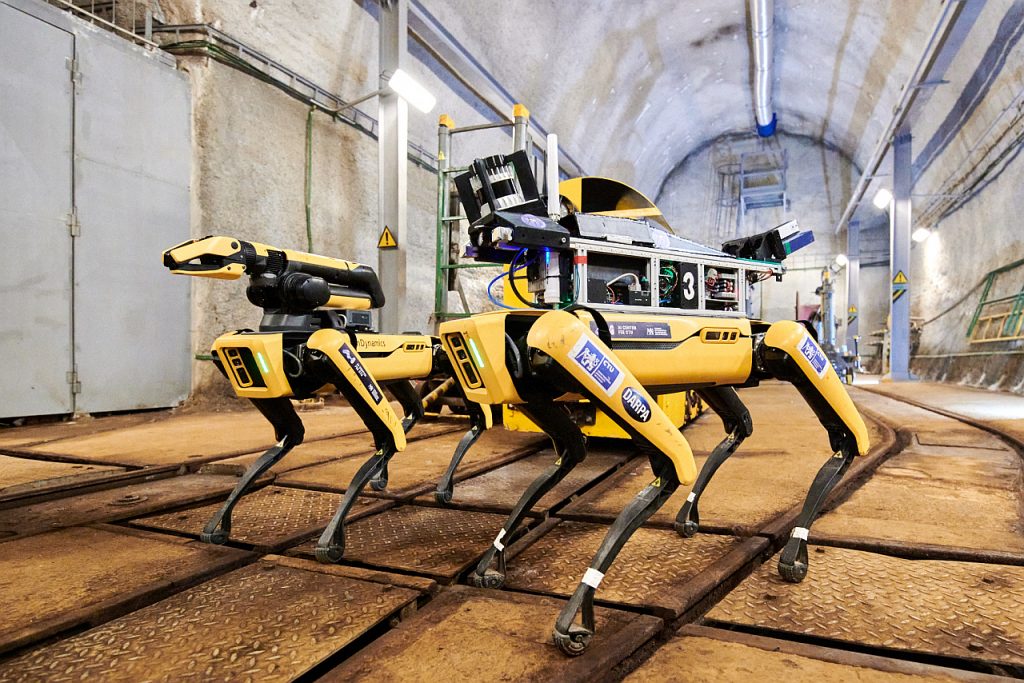
Disinformation on the internet is global — and its international nature up to a fundamental challenge while trying to stop it. In their latest blogpost, Avast researchers Sadia Afroz and Vibhor Sehgal detail the problems associated with the free reign of disinformation online, particularly in the pressing context of the violent conflict between Russia and Ukraine. In addition to the blogpost, the newly released Avast Digital Wellbeing Report shows that people in countries with more digital freedom face fewer cybersecurity risks and stronger privacy regulations. Yet transparency and privacy concerns remain a problem worldwide, which deserves appropriate attention from researchers and regulators alike.
The diverse troop of robots who roam the labs of CTU’s Faculty of Electrical Engineering was recently joined by two new SPOT robo-dogs with a robotic arm. The SPOTs from Boston Dynamics arrived on campus a few weeks ago – the team of roboticists and computer scientists is still getting acquainted with them and their brand new accessories. However, one has already been put to work: in cooperation with Kolektory Praha, it spent a total of six days underground in three different underground spaces, supported primarily by the FEL CTU navigation system. The project collected data for a digital 3D map of the collectors, which can be used to explore the normally inaccessible tunnels during virtual tours.
Bc. Roman Bushuiev, student at CTU’s FIT, has received the Via Chimica Prize for 2022 recognising the excellence of his bachelor thesis entitled Prediction of terpene biosynthesis using machine learning. He worked on the research at the Department of Applied Mathematics in collaboration with the Institute of Organic Chemistry and Biochemistry of the CAS. Understanding the process of terpene biosynthesis is an important step towards a new era of drug design. Together with the award, the young scientist will receive a personal bonus of 50,000 CZK from the Experientia Foundation. And Czech Technical University itself also has a reason to celebrate: for the first time since ranking started, it has been included in the Top 400 Global Universities list as compiled by QS World University Rankings. Relative to the last academic year, the institution has risen by 25 places and took the 378th spot among 2642 global institutions.
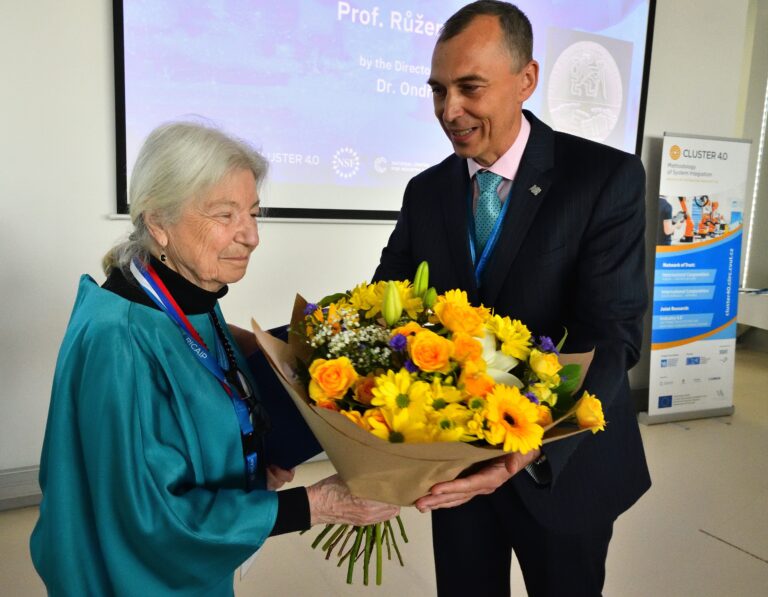
Professor Růžena Bajcsy, a legend in the field of computer sciences and a world-renowned robotics researcher of Slovak origin, was awarded an honorary doctorate from the University of Žilina and a medal of the Czech Institute of Informatics, Robotics and Cybernetics of the Czech Technical University in Prague (CIIRC CTU) for her lifelong contribution to the development of science and Czech-Slovak-American scientific relations. The honour was awarded during the US-EU workshop on the use of artificial intelligence in industry, which Prof. Bajcsy co-organized in Prague together with Prof. Vladimír Mařík and Prof. Wolfgang Wahlster.
CTU’s student team aptly named „driver_final_pls_work.py“ has succeeded in the 10th Grand Prix F1TENTH virtual car competition, and placed fourth in the final race. The team was made up of CTU FEE and Erasmus exchange students, consisting of Jiří Janota, Adam Jirkovský, Rose Lu, Royce Lu and Pierre Casimiro, who worked under the guidance of David Zahrádka from the Intelligent and mobile robotics research group at CTU’s CIIRC.
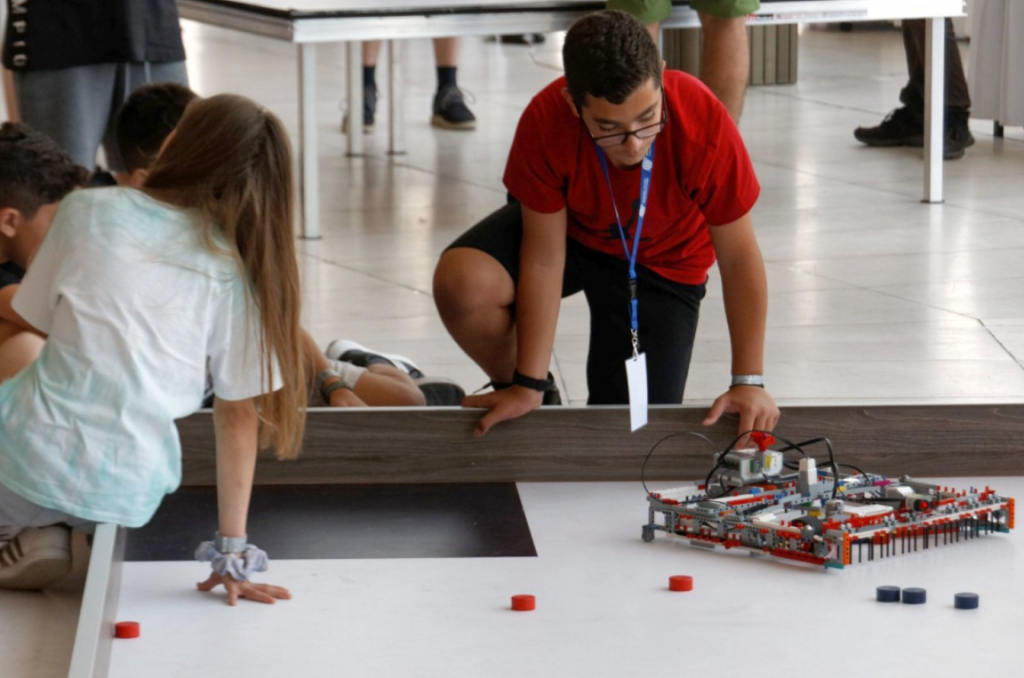
Last month saw the release of the latest edition of the Industry 4.0 Bulletin, dedicated to the applications of artificial intelligence and machine learning in industrial production and management. In case you’re more into podcasts, though, consider listening to the latest Inovacast with Libor Přeučil of CIIRC CTU. The conversation focuses on intelligent mobile robotics, detailing how artificial intelligence can help robotic systems navigate dynamic environments.
After a two-year hiatus due to the pandemic, the Robotic Day has returned to the Prague Congress Centre again this year. The largest amateur robot competition in the Czech Republic organised by CUNI’s Faculty of Mathematics and Physics and the Robonika association welcomed over four hundred enthusiasts as well as 118 home-made robots. In case you missed the exciting event, you can read a brief article and view fun photos of amateur robotic creations on Charles University’s website.
📍 From the local AI scene
CzechInvest launches ambitious Technological incubation programme
Do you have an early-stage technological start-up looking for funding and acceleration opportunities? Starting July 1st, CzechInvest provides new programmes supporting innovative technology. Acting across seven specialised incubators focused on seven fast-moving industries, the new Technological incubation project is the most ambitious programme of systematic support for Czech SMEs. In the programme’s first call, four industries are included: if your company works on artificial intelligence, mobility, ecology or in topics related to creative industries, register here.
Improving medical care, one dataset at a time
Hospitals across Europe are often overwhelmed by rendering appropriate and timely care to their patients, focusing on providing immediate relief first and foremost: but in the process, valuable data is collected, and processing it effectively could improve the quality of healthcare outcomes. Czech start-up Datlowe, founded by alumni of CUNI’s MFF, helps healthcare providers render more efficient and effective care by tracking and analysing medical data across multiple European countries.
📰 Stuff that interests us
- DALL·E 2, Explained: The Promise and Limitations of a Revolutionary AI (article).
- Google’s Search for bold ideas to drive climate action (article, call for applications).
- Eu Comission’s AI Watch, road to the adoption of Artificial Intelligence by the public sector (report).
- LUMI, Europe’s fastest supercomputer, has begun operation, manufacturing in Kutná Hora (article, in Czech).
- Is Google’s LaMDA Sentient? Unlikely, but do we even know what sentience is? (article, in Czech).
- The state of artificial intelligence-based FDA-approved medical devices and algorithms: an online database (article).
🧩 ML/AI sources we recommend
Andrew Ng’s The Batch — Special Issue on Foundational Algorithms
A solid, up-to-date foundation is key to being a productive machine learning engineer. A certain shared base of knowledge is essential to the rapid progress we’ve seen in machine learning in recent years: many teams draw on foundational algorithms in their day-to-day work, and research papers tend to assume familiarity too. Last month’s special issue of The Batch explores some of our field’s most important algorithms, explaining how they work and describing some of their surprising origins.
Jedničky a Nuly — Ing. Jiří Chludil, Department of software engineering at FIT CTU
How can virtual reality help us understand the past? Across archaeological research, 3D modelling of historical landmarks, and digital archiving, new technology offers a lot of potential not only for the future, but also for our past. “The eternal cities of Czech Queens” is a project shedding light on the difference between virtual and mixed reality. To explore further, listen to the new podcast episode which hosts Ing. Jiří Chludil.
📢 Community calls
Contribute to the prestigious Human-aligned AI Summer School
The Human-aligned AI Summer School is a four-day international conference for graduate students and researchers working on AI and machine learning, taking place in Prague this August. To aid its organisation, the event is looking for reliable students and volunteers ready to ensure smooth communication in English, prepare the venues, and assist with logistics. In case you’re interested, apply here.
Join an ambitious project connecting machine learning with prediction markets
A new Prague-based project aims to create a global forecasting platform based on the combination of prediction markets with machine learning. Prediction markets are increasing in popularity in recent years, mainly thanks to their ability to aggregate information via market mechanisms, which leads to better decision-making of individuals as well as entire societies. The new project aims to improve the markets’ functioning by utilising large ML-based language models (such as GPT-3). For their founding research team, they are looking for an ML researcher or engineer who would be happy to contribute to the project’s broader strategy, possibly as a co-founder.
💼 Open job positions
Avast
Datamole
Recombee
Infrastructure & Site Reliability Engineer (SRE)
Czech Technical University in Prague
PhD Position: Mathematical Optimization and Control in Human-Compatible AI
Prediction Markets & Large Language Models
Next up from prg.ai

Typical Prague AI firm is young, self-sufficient, and export oriented, shows our new comprehensive study
130 companies, 11 interviews, 9 business topics. Explore all that and more in the unique study authored by prg.ai, which contains an overview of last year's most notable events on the local AI scene or articles on the future of AI or gender equality in research.
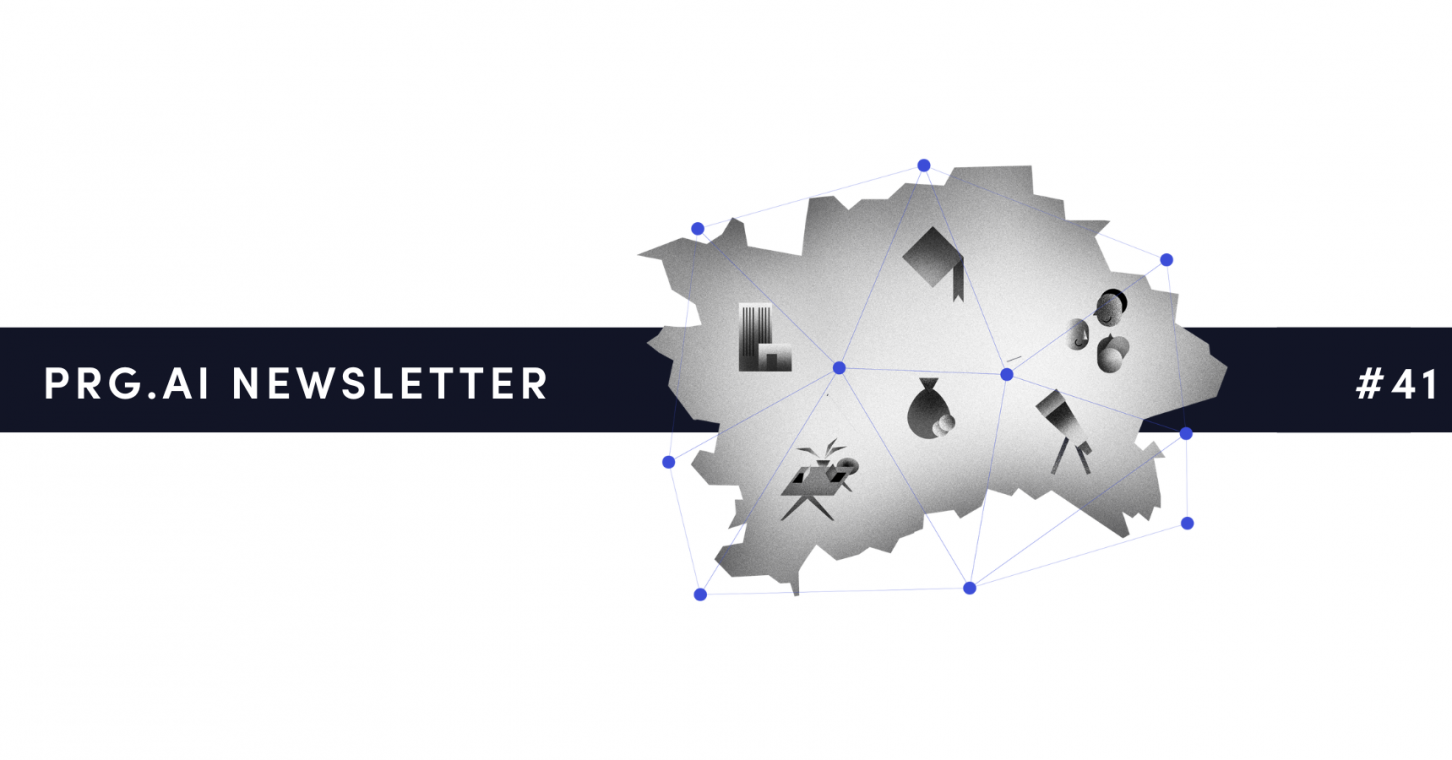
prg.ai newsletter #41
The first spring edition of our newsletter! Get the latest prg.ai updates, exciting news from the Prague AI scene, a curated list of interesting events, open positions, and much more. Stay in the loop!
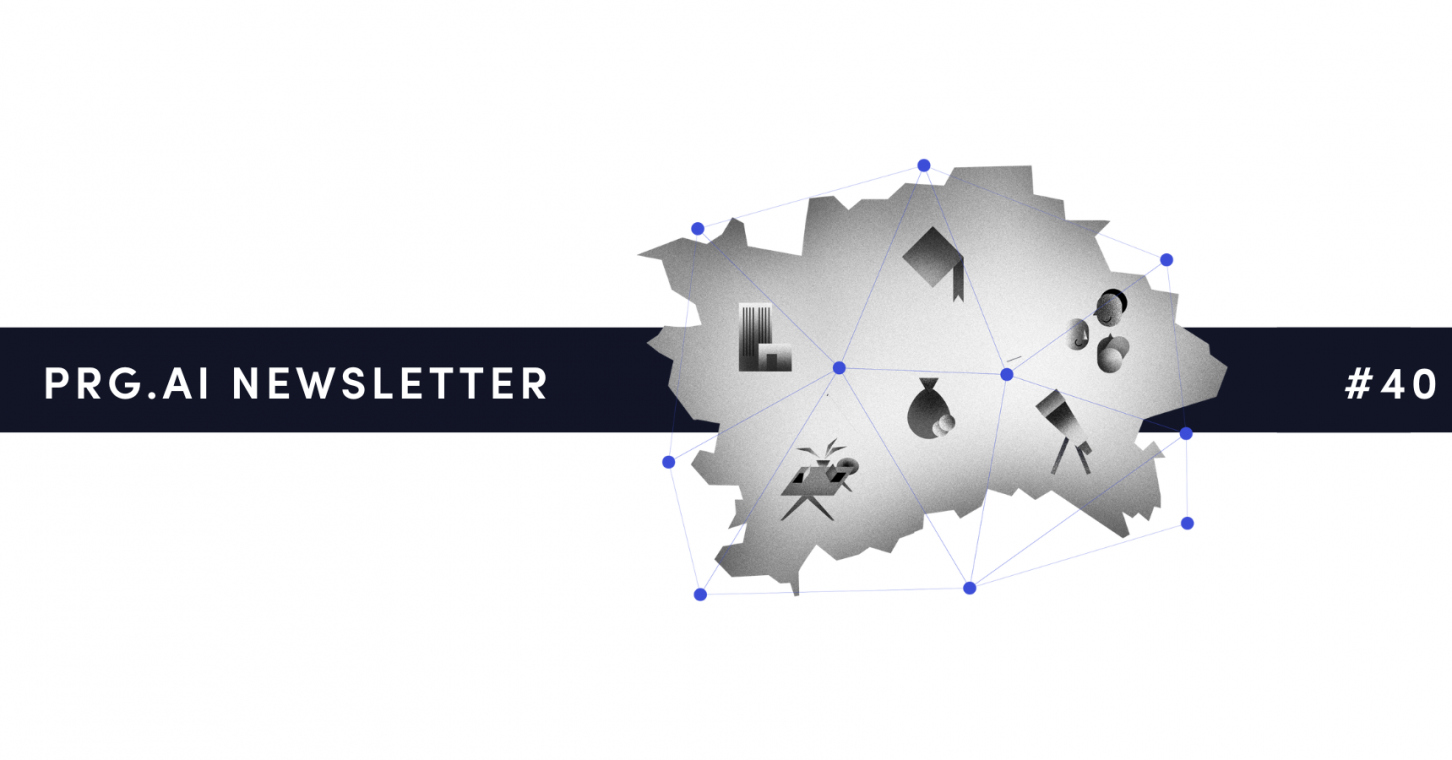
prg.ai newsletter #40
The fortieth milestone issue of the prg․ai newsletter is packed with news and intriguing facts not only from the Prague AI scene. Keep reading so you don't miss out on anything!
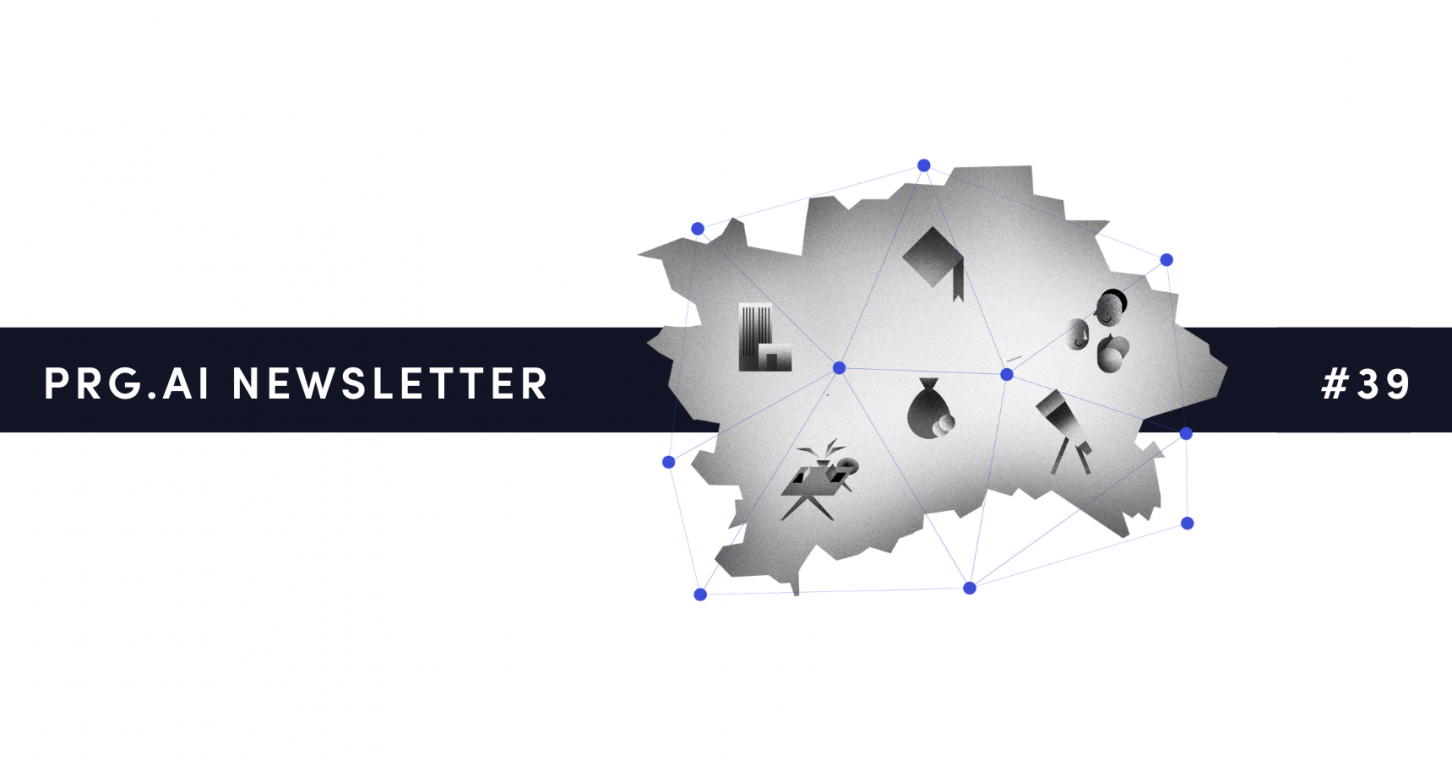
prg.ai newsletter #39
What did the first month of 2024 bring, and what can you look forward to in February? Find out in the next prg.ai newsletter. Check out what's new on the artificial intelligence scene (not only) in Prague.

